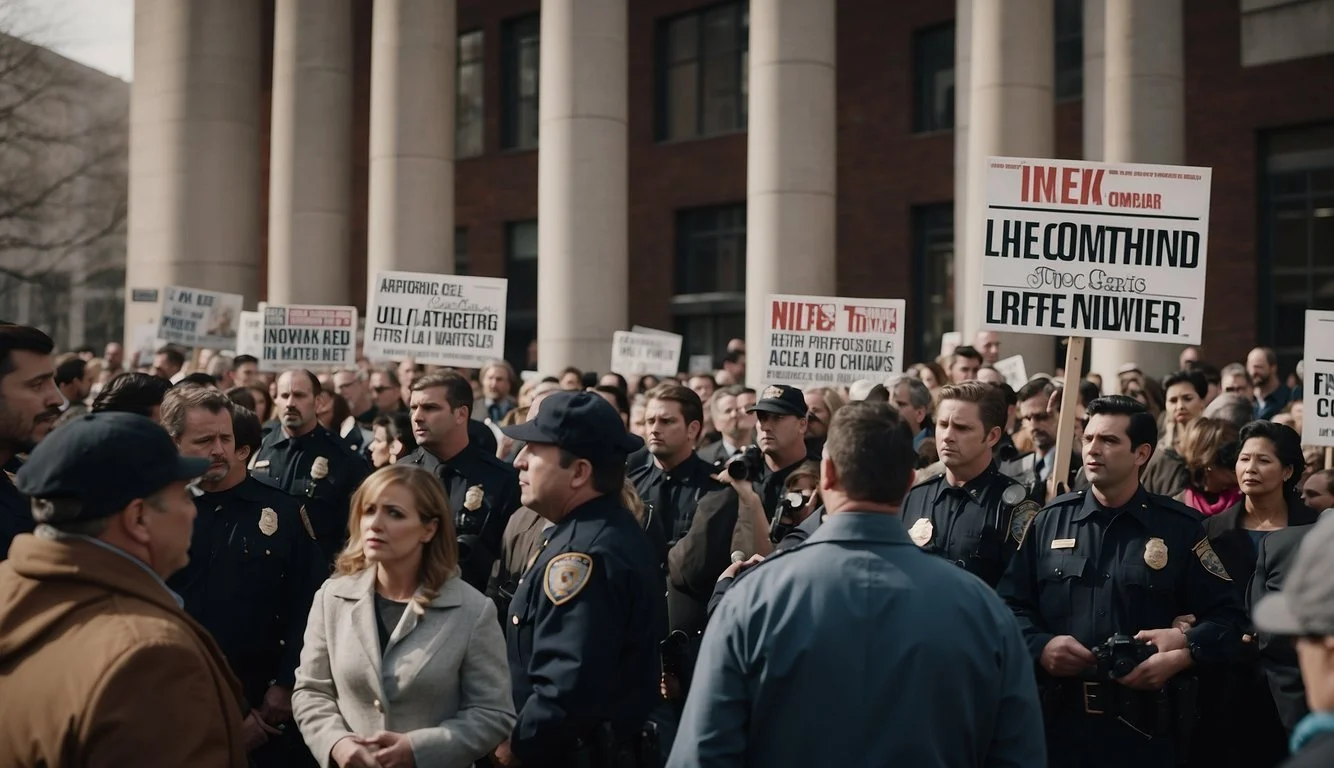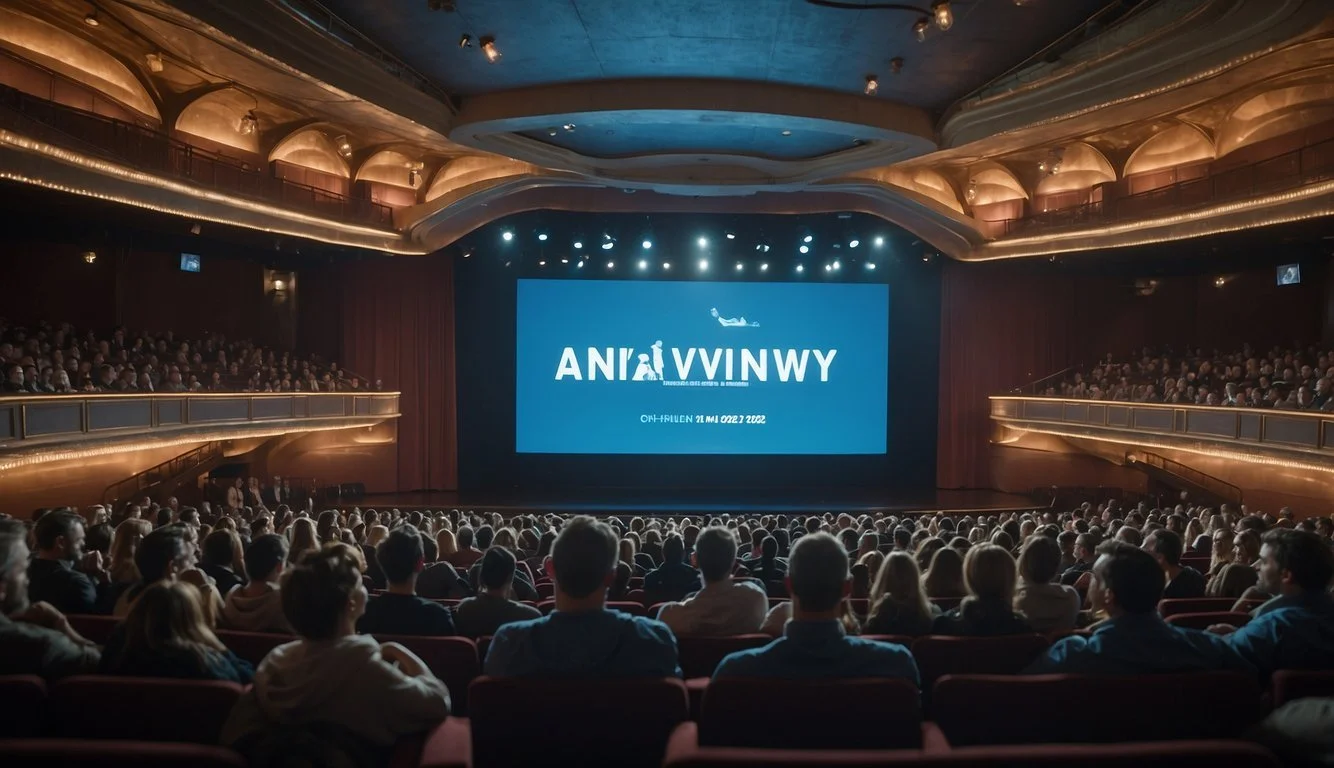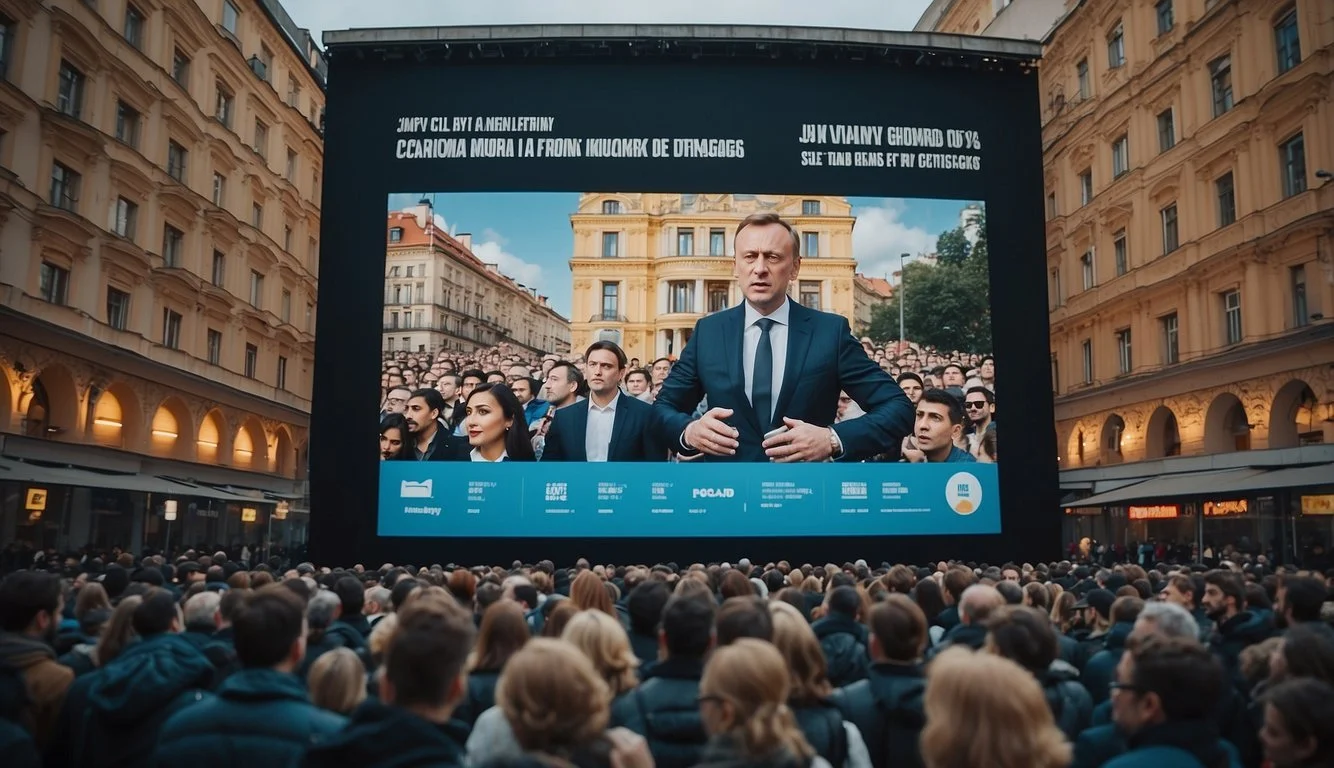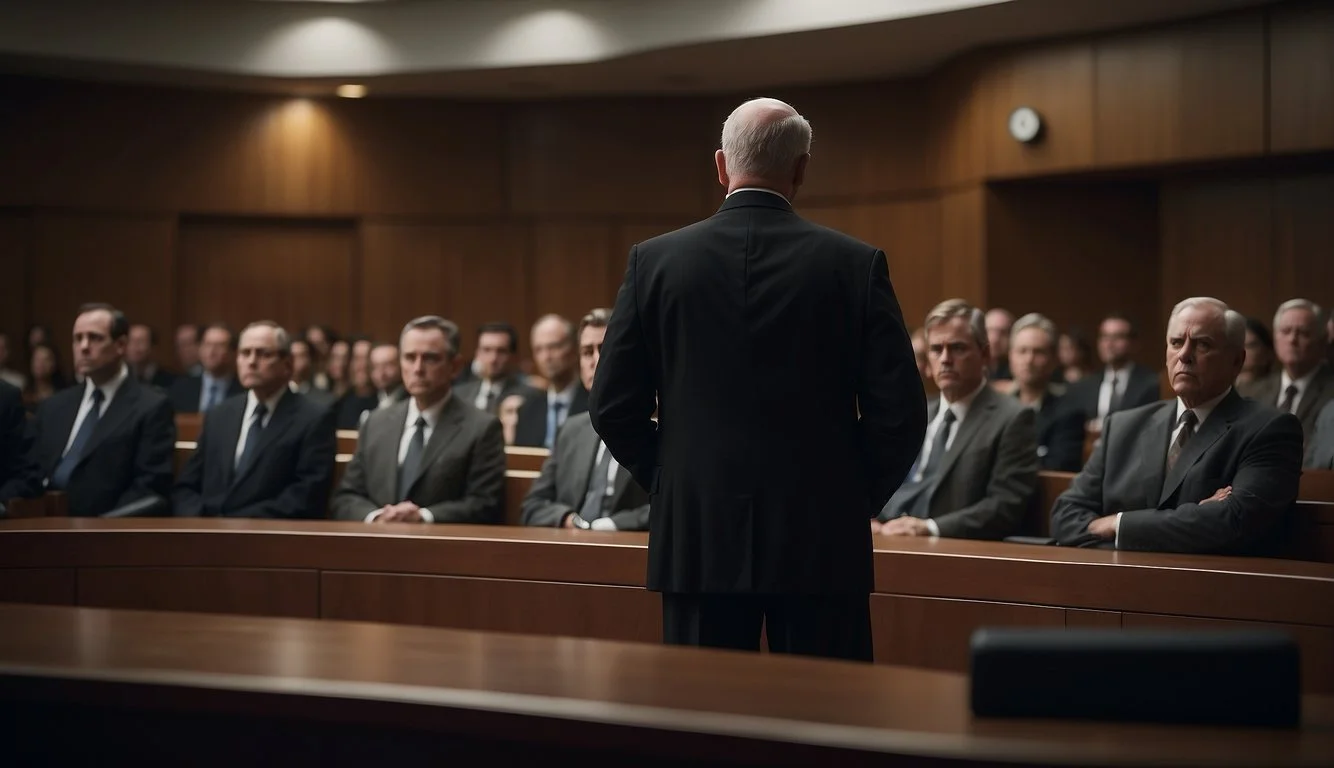Documentary Review: Navalny (2022)
A Deep Dive into Russian Politics
Documentary Review: Navalny (2022)
Alexei Navalny, the figure at the heart of the 2022 documentary "Navalny," is widely recognized for his courageous opposition to Vladimir Putin's regime. The documentary offers viewers an intense look into Navalny's life, particularly focusing on his near-fatal poisoning in August 2020. Through raw and gripping footage, the film captures the critical moments when Navalny's flight from Siberia to Moscow diverted, saving his life.
The film doesn't just tell the story of Navalny's poisoning; it also highlights his broader fight against political corruption in Russia. The audience witnesses Navalny's relentless pursuit of justice and his unwavering determination to expose the truth, even at great personal risk. These elements combine to paint a vivid picture of his steadfast resistance.
Featuring interviews with Navalny, his family, and close associates, the documentary digs deep into the human aspects behind the political drama. The narrative is complemented by the work of directors and editors who seamlessly blend personal anecdotes with broader political contexts, making "Navalny" a must-watch for anyone interested in contemporary politics and the ongoing struggle for freedom in Russia.
Overview of 'Navalny'
The documentary "Navalny" delves into the life and struggles of Russian opposition leader Alexei Navalny. It focuses on a critical event in his life and profiles the main individuals involved in his story.
Summary of the Documentary
"Navalny" primarily revolves around the dramatic incident in August 2020 when Alexei Navalny was poisoned during a flight from Siberia to Moscow. His collapse and subsequent emergency landing in Omsk are captured in harrowing footage. The film traces his recovery, political activism, and the ongoing threat to his life and freedom. It emphasizes his unwavering stance against Vladimir Putin's regime and the personal sacrifices he and his family endure.
Filmmaking Approach
Director Daniel Roher employs a documentary filmmaking style characterized by direct interviews, real-time events, and behind-the-scenes footage. The use of actual videos from critical moments, including Navalny’s poisoning and hospital scenes, adds authenticity and emotional weight. Roher’s narrative structure avoids a chronological summary, instead zooming in on pivotal moments to maintain a tight, engaging storyline. Music by Marius de Vries and editing by Langdon Page enhance the viewing experience, making the documentary both informative and compelling.
Key Figures Profiled
Alexei Navalny: The central figure, a prominent Russian opposition leader known for his anti-corruption campaigns and political rallies against Putin.
Yulia Navalny: His wife, who stands by him through thick and thin, offering emotional and logistical support.
Dasha and Zakhar Navalny: Their children, whose lives are inevitably impacted by their father's activism.
Christo Grozev: An investigative journalist from Bellingcat, who plays a crucial role in uncovering details about the poisoning.
These profiles provide a textured understanding of those who support Navalny’s mission and the personal stakes involved in his fight against systemic corruption.
Production Background
"Navalny" (2022) is an American documentary that gives an intimate look into the life and challenges faced by Russian opposition leader Alexei Navalny. The documentary's development was influenced by the director's vision, robust funding and support, and comprehensive interviews.
Director's Vision
Daniel Roher directed the documentary, bringing a focused and journalistic approach to the storytelling. Roher aimed to shed light on Alexei Navalny's fight against corruption and his near-fatal poisoning. His goal was to create a gripping narrative that would engage and inform audiences about the political climate in Russia. Roher's dedication was evident as he meticulously curated footage and interviews, ensuring an impactful and coherent portrayal of Navalny's life and activism.
Funding and Support
The documentary received backing from prominent entities like HBO Max and CNN Films, which provided vital resources and distribution platforms. This financial support ensured high production quality and accessibility to a broad audience. The involvement of such reputable organizations also added a layer of credibility and visibility to the project, helping it gain traction and recognition in major film festivals and subsequently winning the Audience Award at the Sundance Film Festival.
Interview Processes
The filmmakers conducted in-depth interviews with key figures, including Navalny himself, his family members, and associates. These interviews offered personal insights and exclusive content that formed the backbone of the documentary. They were carried out in various settings, ensuring authenticity and capturing the raw emotions and realities faced by Navalny and his circle. This approach allowed viewers to connect on a deeper level with the subject matter, providing a comprehensive understanding of the challenges and risks involved in opposing an authoritarian regime.
Political Context
The documentary Navalny (2022) illustrates Alexei Navalny's political struggle, the broader Russian political environment, and international responses to his opposition against Vladimir Putin.
Navalny's Political Impact
Alexei Navalny has emerged as a significant opposition figure in Russia. His anti-corruption campaigns and investigations have exposed high-level corruption within the Russian government.
Navalny's use of social media and investigative journalism brought international attention. His courage in returning to Russia after being poisoned exemplified his commitment. Despite numerous arrests, he remains a symbol of resistance against autocratic rule.
Russian Political Climate
Russia's political environment is marked by tight control and suppression of dissent. Under President Vladimir Putin, the government has systematically dismantled free press, curbed political freedoms, and repressed opposition figures.
Navalny’s poisoning in August 2020 underscores the risks faced by Putin's critics. The political system prioritizes stability and loyalty to the regime. Protests and independent political movements are often met with severe crackdowns.
Global Reactions
Internationally, Navalny’s plight has galvanized responses from governments, human rights organizations, and the public. Western nations have imposed sanctions on Russian officials linked to Navalny's poisoning.
His case has highlighted broader issues of human rights abuses in Russia. Navalny's arrest and imprisonment drew widespread condemnation. The European Parliament awarded him the Sakharov Prize for Freedom of Thought, underscoring his influence.
Overall, Navalny's situation has intensified global scrutiny of Putin's administration and galvanized calls for greater accountability in Russia.
Documentary Analysis
"Navalny" (2022) offers an in-depth look at the dramatic events surrounding Russian opposition leader Alexei Navalny, combining a compelling narrative with striking visual and auditory elements. The film leverages a strong narrative structure, effective cinematography, gripping sound and music, and meticulous editing and pacing to draw viewers into Navalny's harrowing journey.
Narrative Structure
The documentary unfolds with a tight focus on Navalny's near-fatal poisoning incident in August 2020, providing a chronological recount of events. The filmmakers chose to center most of the narrative around this pivotal moment, using it as the anchor for the entire film. Interviews with key figures like Navalny himself, his family, and investigative journalists provide personal insights and firsthand accounts that enrich the storyline.
The narrative structure is complemented by detailed background information about Navalny's political activities and his ongoing conflict with Vladimir Putin’s regime. This dual approach ensures that viewers not only understand the gravity of the poisoning incident but also grasp the broader socio-political context in which it occurred.
Cinematography
Cinematographer Niki Waltl captures both the tense moments and the serene interludes with a keen eye for detail. The use of close-up shots during interviews helps convey the emotional weight of the subjects' words. In contrast, wide-angle shots of protests, rallies, and the Russian landscape provide a broader context.
Particularly noteworthy are the scenes filmed during the chaotic events in Omsk, where Navalny was initially hospitalized. The raw, unfiltered footage adds to the documentary’s authenticity, allowing viewers to experience the urgency and peril of those moments. The visual contrast between the serene and the tumultuous effectively mirrors Navalny's turbulent journey.
Sound and Music
The sound design and musical score by Marius de Vries and Matt Roberton play a pivotal role in building the film's atmosphere. The documentary strategically uses natural sounds, like the ambient noise of protests and cityscapes, to ground the viewer in particular settings. Interview dialogues are clear and crisp, ensuring that no detail is lost.
The music underscores the film's dramatic and emotional beats, using a mix of orchestral and electronic elements to heighten tension. The score swells at key moments, accentuating the gravity of the unfolding events and keeping viewers engaged. This auditory layer adds another dimension to the storytelling, enhancing the overall impact.
Editing and Pacing
Editors Langdon Page and Maya Daisy Hawke skillfully navigate the complex narrative, maintaining a brisk yet coherent pace. The decision to intersperse archival footage with present-day interviews helps to create a seamless flow. This technique ensures that viewers remain engaged without feeling overwhelmed by the sheer volume of information.
The pacing is particularly effective during the investigative sequences. By alternating between interviews, on-the-ground footage, and archival clips, the editors manage to maintain a consistent tempo that keeps viewers on the edge of their seats. This well-balanced editing approach ensures that the documentary remains compelling from start to finish.
Themes and Messages
The documentary "Navalny" touches on critical issues such as the fight for freedom against oppression, the courage displayed by activists, and the conflict between truth and propaganda in authoritarian regimes.
Freedom and Oppression
"Navalny" illustrates the stark contrast between the desire for freedom and the harsh realities of oppression. Alexei Navalny represents a symbol of resistance against the Putin-led government. His poisoning in 2020 directly highlights the lengths to which oppressive regimes will go to silence dissent.
The film underscores the impact of government suppression on both an individual and societal level. By showcasing Navalny’s efforts to expose corruption and fight for democratic rights, the documentary emphasizes the fragility of personal and political freedoms under authoritarian rule.
Courage and Activism
Courage is a central theme seen through Navalny's unwavering commitment to activism. Despite numerous threats to his life, including an attempted assassination, he continues to campaign against corruption. His bravery serves as a powerful reminder of the sacrifices activists make to challenge oppressive systems.
The film captures pivotal moments of Navalny risking everything for his cause. Viewers witness how he mobilizes support and inspires others, underscoring the essential role of activism in fostering change. His efforts resonate as a call to action for those who believe in justice and human rights.
Truth and Propaganda
The struggle between truth and propaganda is highlighted through Navalny's battle against state-controlled media. The film portrays how misinformation and state narratives are used to discredit his work and preserve the status quo. In contrast, Navalny leverages social media and investigative journalism to unveil the truth.
His release of compromising tapes on Putin's cronies and public exposés demonstrate an unwavering dedication to transparency. This illustrates the potent force of truth in combating propaganda, showing that diligent, fact-based reporting can challenge and potentially dismantle authoritarian lies.
Public and Critical Reception
"Navalny" has garnered significant attention from both audiences and critics alike. Its portrayal of Alexei Navalny's struggle against the Putin regime resonated widely, leading to a successful release and multiple accolades.
Box Office and Viewership
"Navalny" performed impressively at the box office, drawing substantial viewership. Its success was fueled by its timely release and the ongoing global interest in Russian politics. The documentary was picked up by major streaming platforms, further expanding its audience reach.
The attention it received on social media platforms also contributed to its wide viewership, with hashtags related to Navalny trending during its release week.
Critics' Reviews
Critics lauded "Navalny" for its in-depth and gripping narrative. Prominent review sites, including Roger Ebert’s and NPR, highlighted the film’s compelling portrayal of Navalny’s life. The cinematography, direction by Daniel Roher, and the emotional impact were frequently praised.
Review aggregators like Rotten Tomatoes and Metacritic registered high scores, reflecting a general consensus of approval among critics. Specific mentions include the powerful storytelling and the raw, unflinching footage that captured Navalny's harrowing experiences.
Awards and Nominations
The documentary received critical acclaim in the awards circuit. It won the 2022 Oscar for Best Documentary Feature, a significant achievement that underlined its global impact. Additionally, it claimed the Critics’ Choice and BAFTA awards.
These accolades recognized the film's exceptional direction, editing, and compelling narrative. The creative team, including Daniel Roher, Langdon Page, and Maya Daisy Hawke, was particularly noted for their contributions.
Ethical Considerations
Examining the documentary "Navalny" requires attention to both the potential bias in its presentation and the implications it raises for the privacy and security of those involved.
Subjectivity and Bias
Documentaries often reflect the perspectives and biases of their creators. "Navalny" is no exception. Directed by Daniel Roher, it focuses heavily on Alexei Navalny's confrontation with Russian government authorities. The narrative is framed in a way that portrays Navalny in a heroic light, challenging a corrupt system.
This representation can lead to questions about impartiality. Bias can influence the choice of scenes, interviews, and editing, potentially shaping public opinion. For instance, the footage of Navalny in distress after his poisoning is emotionally charged, creating sympathy for him. While this approach can engage viewers, it also risks simplifying complex political dynamics into a binary struggle of good versus evil.
Transparency in the director’s intent and filmmaking process is crucial. Roher's method of selecting specific moments and conversations can raise concerns about whether opposing viewpoints are adequately represented. Critical thinking is required to discern whether the documentary promotes an agenda or provides a balanced view.
Privacy and Security Implications
The documentary exposes several risks related to privacy and security. Navalny’s poisoning and subsequent investigation are central to the film, involving sensitive personal data and high-stakes political implications. Filming and disseminating this information can endanger the individuals involved, including Navalny’s family and associates.
Protection of sources and interviewees is essential. The film includes conversations with Navalny and his team, possibly revealing their strategies and vulnerabilities. Such exposure can have severe repercussions, including potential retaliation from those criticized.
Moreover, the documentary's public release raises questions about digital security. Handling sensitive footage and ensuring it doesn’t get into the wrong hands is critical. Encryption and secure storage of materials are mandatory to protect against leaks and unauthorized access.
Therefore, the ethical responsibility of filmmakers extends beyond storytelling to safeguarding the well-being and privacy of all participants.
Legacy and Influence
The documentary "Navalny" has left a lasting impact on both the realm of documentary filmmaking and political discourse worldwide.
Influence on Documentary Filmmaking
"Navalny" has set a benchmark in documentary filmmaking by blending investigative journalism with compelling storytelling. The film’s use of real-time footage, including the dramatic emergency landing and subsequent hospital scenes, underscores the power of capturing events as they unfold.
Directors and producers are likely to draw inspiration from its approach to making content that is both visually and emotionally engaging. The involvement of individuals such as Niki Waltl as the cinematographer and Langdon Page as one of the editors emphasizes the importance of skilled professionals in creating a narrative that is both coherent and impactful.
Further Political Discourse
The documentary has significantly contributed to political discourse by highlighting the personal risks faced by political dissidents like Alexei Navalny. It brought to light the lengths to which authoritarian regimes might go to silence opposition. The film has sparked conversations not just about Navalny's case but the broader issues of political freedom and human rights violations.
Public figures, activists, and policy-makers have utilized the film as a reference point in discussions about democracy and governance. Additionally, its reception and accolades, including an Oscar win, have ensured that these essential political conversations remain prominent in global media. This emphasis helps bring sustained attention to critical issues of governance and civil liberties.
Concluding Thoughts
The documentary "Navalny" stands out in its portrayal of Alexei Navalny’s courage and determination.
By focusing on the episode of his poisoning and the subsequent investigation, the film masterfully highlights the threats faced by political dissidents in Russia.
The filmmakers employ a balanced mix of personal interviews, archival footage, and investigative journalism, making the film both informative and engaging.
The documentary’s structure keeps viewers engaged as it documents Navalny’s journey from his activism to the life-threatening incident and beyond.
This approach underscores the serious risks involved in standing up against corruption and authoritarian rule.
Critical elements such as the emergency landing in Omsk and the detailed investigation into the poisoning provide a harrowing yet compelling narrative.
The inclusion of Navalny's family and close allies adds a personal dimension to the story, offering insights into the human toll of his activism.
Moreover, the film's technical aspects—such as editing, music, and cinematography—complement the storytelling, enhancing the viewer’s experience.
Featuring interviews with Navalny and key figures like Christo Grozev adds depth and credibility, making the content relatable and authoritative.
In sum, "Navalny" serves as a critical piece of documentary filmmaking, shedding light on pivotal moments in recent political history with precision and clarity.






